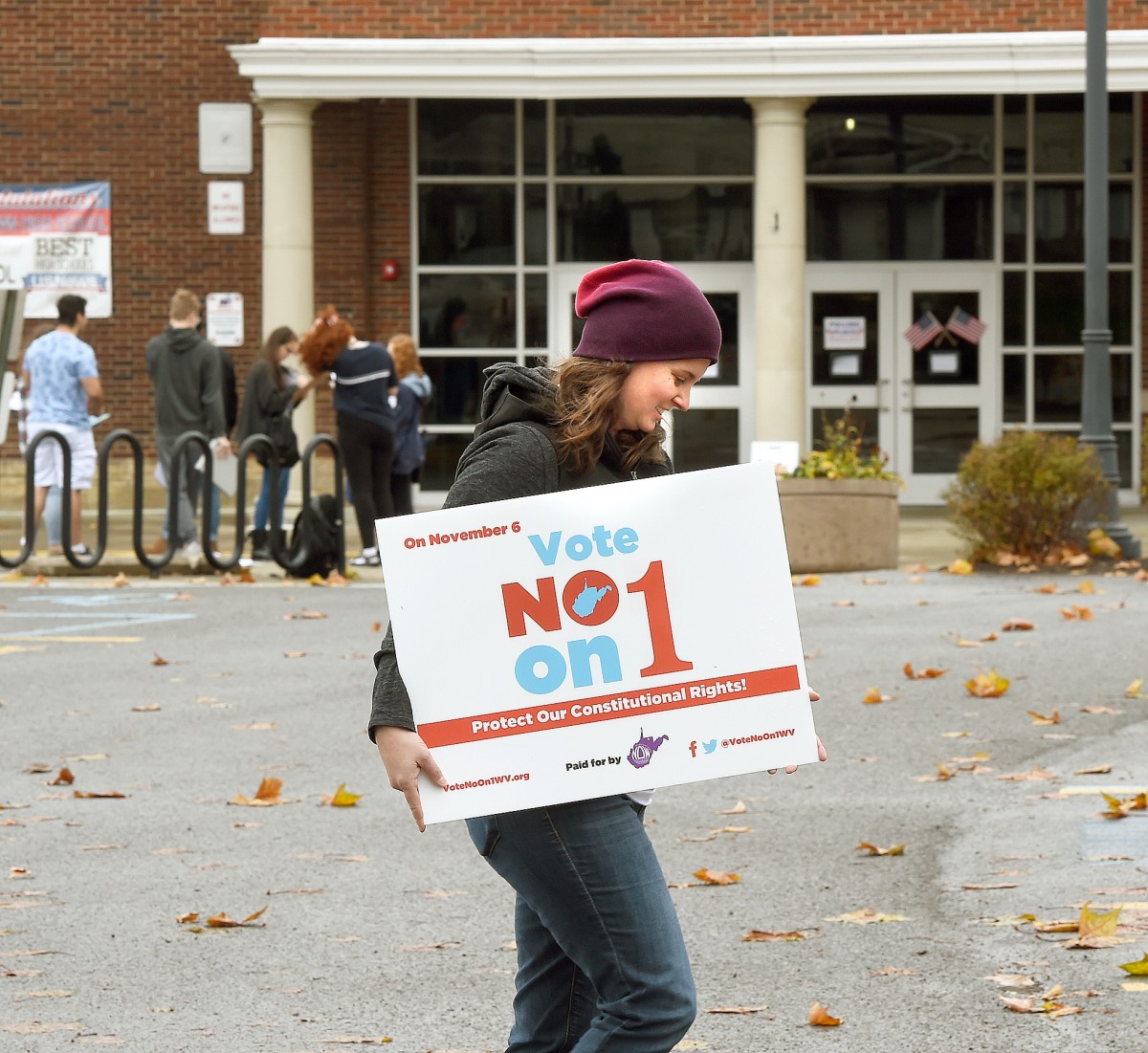MORGANTOWN — Pro-life advocates celebrated a narrow victory with Tuesday night’s passage of Amendment One, which could remove the state’s mandate to pay for some abortions.
With only a few precincts yet to report, the amendment was approved by a 52-48 percent margin. Some 290,415 residents voted for the change, while 272,082 opposing.
The 30,000-plus Monongalia County voters overwhelmingly bucked the outcome, however, opposing the measure 61 percent to 39 percent, a margin of 19,091 to 11,859.
Though the amendment featured few words — “Nothing in this Constitution secures or protects a right to abortion or requires the funding of abortion.” — it’s motives and impact were broadly interpreted.
West Virginians for Life, which championed the amendment, claimed state taxpayers have paid $10 million for some 35,000 elective abortions since a 1993 Panepinto ruling by the state Supreme Court.
“Our focus has always been on trying to stop state funding of elective abortions in West Virginia,” said Wanda Franz, president of West Virginians for Life.
Opponents criticized the measure as a move toward outlawing most abortions and not merely an issue of Medicaid funding for these procedures.
“You can see in the language itself right there that it’s much more expansive than that,” said Margaret Chapman-Pomponio of the pro-choice advocacy group West Virginia Free.
“We’re talking about changing our Constitution here with something so extreme that has no protections for victims of rape or when the pregnancy puts the woman’s life at risk, and so we’ve just got to vote against this.”
Amendment One supporters claimed at-risk mothers and rape victims would be excluded, because overturning Panepinto case would trigger a retroactive law that denied state funding only to elective abortions.
In its Panepinto decision a quarter-century ago, the West Virginia Supreme Court ruled 3-2 the state had an obligation to provide medical care for the poor.
The state’s ACLU chapter strongly opposed Amendment One, as did state Delegate Barbara Fleischauer (D-51), an attorney who criticized the government for overstepping.
“It’s a very private decision whether you want to have a child or whether you should be forced to have a child if you can’t afford the procedure,” Fleischauer told MetroNews in the run-up to the election.
West Virginia is one of 17 states that requires taxpayers to fund abortions for poor women.
Voters in Oregon were considering a similar initiative to prohibit public funding for abortion except in cases of rape, incest or when the mother’s life is in danger.
Alabama’s ballot put forth a constitutional amendment that would grant “fetal personhood” to unborn babies and “recognize and support the sanctity of unborn life and the rights of unborn children.”




